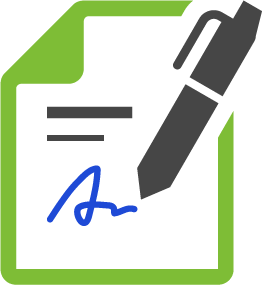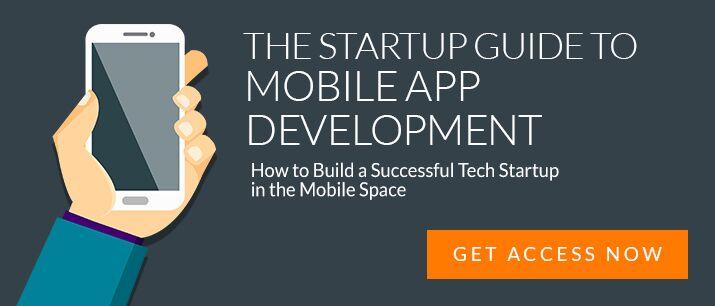How To Make Sure No One Steals Your App Idea
“WHAT IF SOMEONE STEALS MY IDEA??”
I can’t tell you how often I hear this from clients.
A lot of startups are understandably a bit nervous to talk openly about their app idea without any legal protection or ownership.
And it’s not like IP protection is something that was taught in high school…legal stuff can be confusing to wade through!
In this article I’m sharing with you the legal basics you should know to give your app an adequate level of protection throughout ideation, development and commercialisation.
If you’re after more detailed information, I’d recommend consulting a lawyer that specialises in patents and IP protection!
Here are 5 legal aspects you need to consider when developing an app.
1. Get NDAs Signed

Any app developer or contractor you work with or share your concept with should sign an NDA.
An NDA is a contract between one or more parties agreeing not to disclose confidential information that they have shared with each other as a necessary part of doing business together.
The NDA enforces that any sensitive data about the project or client will not be announced or shared with anyone outside the company in any manner.
In other words, if I sign an NDA with you on your idea, I can’t talk about your idea outside of my organisation.
You can ask an app developer at any point to sign an NDA. You can even ask for one in the first phone call before you get a quote!
Although NDAs have a horrible history of flunking in court, it gives you at least some level of protection against sharks in the industry.
Just remember: Information shared before the NDA is signed may not be captured under the agreement. Get one early if you’re really paranoid.
2. Copyright and IP Ownership

Any mobile app development company with smart processes will go through a phase of documenting your application.
This should include wireframes, functional descriptions and requirements. And FYI, this is your IP.
See also: How To Detail Your App Requirements To A Developer
Scope documentation
The scoping phase is where your idea is fleshed out and technical requirements are defined, UI designs conceived, and user behaviour flows constructed.
It’s a finicky process for both the app developer and client. So you should pay special attention to this because it can make or break your venture.
I like to use this analogy when explaining the scope:
Let’s say you’re building a house.
Your elected building company are also the architect and the scope is the blue-print of your house.
You need to ensure that the blue-print covers everything you wanted. Otherwise you might end up living in a house without a bathroom, or no windows…
You’ll be asked to sign off on the scope once the documentation has been produced.
This ensures that if you do end up with an application that isn’t working in the way that you had imagined, you actually have a leg to stand on if you want it modified for free!
And a minor change in your eyes could take a month or two to implement. Which can cost you dearly.
IP Ownership
Again, this scope document is your IP. The app developer doesn’t own your scope.
They merely write it for you in exchange for cash. That’s right, it’s paid for.
But if you don’t pay for it, then it will belong to the developer.
It’s important to ensure that it’s your IP in case you decide to move to another application development company.
Something that can be easily overlooked is that software development falls under “literature” and unless explicitly assigned the “author” always retains ownership.
Despite a “develop and pay” contract, if the IP rights aren’t explicitly assigned to you they remain with the software developer.
So its important that;
- All staff have IP assignment clauses in their contracts
- Any app development contract should assign all IP unconditionally after final payment
- IP includes the creative works of the software code and the images, icons etc
Your “final” product will undoubtedly utilise third party modules (like Facebook or Google Maps, for example) for which you cant assign IP.
These are included on a “commercial use” basis.
3. App development contract

When you choose to go into development, your app developer should provide you with a contract explicitly stating the necessary expectations of working together on this project.
This contract is simply an agreement between the client and the developer, and should clearly stipulate the extent or limitations on…
- Data
- Technology
- In-house resources
- Budgets
- Costing
- Scope of work (the scope document above)
- Timelines
- Mode of delivery
- Confidentiality clauses
- Post sales support
- Tenure of support
…and other points that may warrant an increase in efforts from developers or investment from the client’s end.
I would always recommend that you get your legal advisor to read over the agreement/contract before signing it so that they can give you a heads up on any clauses that may affect you later on.
4. IP protection

IP (Intellectual Property) includes every piece of work, data and bit of information that’s used or created in the project lifecycle.
This covers work done right from conceptualisation and preliminary mock up delivery, through to the final app release on the app store.
Specifically for app development, IP would include factors such as:
- source code
- images
- programming snippets
- icons
- app name
- documentation
You can also protect various aspects of a unique concept under IP through:
A) Patenting – A patent is granted to any method, practice or process that hasn’t been done (this way) before and adds significant value to users’ lifestyle or work.
B) Copyright – A copyright is specifically created for safeguarding the expression of an idea rather than the fruition of the idea into a product or service.
5. App legal terms you need to be aware of

To protect the legal entity of the app, the app development team and you as a client, you need to ensure that clear terms for the ‘use of the app’ are stipulated and agreed to by the app user.
The legal aspects that need to be agreed to by the app user (your customers!) include:
A) Terms of use – This is an agreement between the app user and the app owner. It sets forth how the app should be used and what involves an inappropriate usage of the app. It will also cover what will be done in the case of inappropriate usage.
B) Privacy policy – This denotes user agreement to share basic details such as name, birth date, location etc. that is collected in the background as the app is being used.
C) Disclaimer – Protects the app owner against defects or improper functionality of the app
D) Terms and conditions – A must-have in financial transactions occur within your app at any stage!
The final word…
What’s the best way to fix a problem? Prevent it from happening in the first place.
There are countless examples of businesses and entrepreneurs who’ve been burned because they didn’t follow solid legal practices in their ventures.
Don’t be another case-study of ‘mistakes to learn from’.
Follow these guidelines to avoid legal problems before, during and after the app development experience.
Got an app idea you’re ready to bring to life? Don’t miss the guide that helped a startup app sell for $12 million…
Nick Schembri
Latest posts by Nick Schembri (see all)
- How To Make Sure No One Steals Your App Idea - May 18, 2016
- 4 Tips For Conducting Tight Mobile App A/B Tests - January 12, 2016




